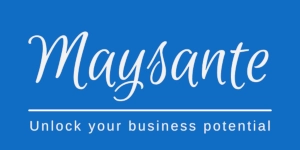There had been so many discussions pre-Covid-19 pandemic about the future of work. The focus was mainly on skills and technology. The debate centred around how the nature of work being carried out by humans versus technology in the workplace will change. The pandemic has shifted the focus sharply on how organisations can leverage people, processes and technology to gain a competitive advantage. During the pandemic, there was a global scale of lockdown at various stages. Everyone who could work from home worked from home. With the exception of frontline workers, it was proven that most work-related activities can be carried out remotely. In some cases, productivity went up.
Priorities and Moving Forward
The talks about flexible working for the future of work and the idea of a flexible workforce have been around for a long time. In the UK, the right to request flexible working was first introduced in 2003. Nonetheless, in reality, flexible working remained a dream for many until the Covid-19 pandemic hit. Most people seized the opportunity to evaluate what really matters to them. For the majority of people, what’s important is their families, health and wellbeing. Their work, pay package and employment are not as high on their agenda. Their focus started to shift towards a better quality of life. A lot of people will take a pay cut to work remotely. Some are defiant that they will never return to the 9-5 office-based work, commuting on crowded trains or prolonged car journeys due to endless time spent in traffic jams.
You may have been very nervous through it all, wondering how your business was going to survive. As a result of the pandemic, you may have asked yourself how your workforce was going to perform. Will they deliver? On the other hand, you may have been extremely impressed with how your employees rose to the challenge and in some cases, exceeded your expectations. As a leader, you would have used the period to evaluate the impact the pandemic has on future work. Assessing how you can do things differently going forward.
The Future of Work is Flexible
The future of work is flexible. As an employer, you will need to offer flexible working arrangements to be able to attract and retain the best talents. Flexibility can be offered in different forms to suit individual employee needs. It can range from working different hours, for example, allowing employees to fit their work around childcare.
Flexible working can mean allowing your employees to work part-time. This will allow them to pursue their passion and to have a better work-life balance. You will need to move more towards measuring productivity by output. And allow for a higher degree of trust and transparency in your organisation. You will also have to adopt flexible policies and processes to accommodate the new way of working. With skills shortages and employers struggling to recruit, it is, therefore, more important for leaders to be in sync with the labour market and to understand what matters to them.
The Future of Work will see more Remote and Hybrid Working
The future of work will see more roles carried out remotely. Most organisations are moving towards a proper hybrid working model for most of their workforce. Some are going fully remote. There are great benefits to remote working. These include better quality of life for your employees, environmental benefits which count towards your corporate social responsibility and increased productivity.

In future, emotional intelligence will play a significant role in leading an organisation. Leaders will have to connect to their remote employees in the same way as you would if you were engaging with them face-to-face. You will need to show more empathy. And will have to demonstrate that you actually understand your workforce, what motivates them, what their aspirations are and what matters to them.
Communication
Communication will continue to play a big role in the future of work. You will need to communicate your vision, the big picture to your employees, wherever they may be. You will have to make information more accessible and easier to find. Meetings have to be on-point and concise. You will have to find a way to confirm that people understand what you are trying to say to them.
You will have to make it clear how you would like your employees to relay information to you and to each other. There are many different media channels through which you and your colleagues and workforce use to stay in touch. So, it is important to decide what channels are acceptable to your organisation. Can the same channels be adopted for both internal and external communication or do you need different ones? Is there an acceptable tone for communicating? Is your entire organisation aware of your style?
Performance Management, Training and Development
For your organisation to be ready and to thrive, your workforce will have to be competent, engaged and motivated. They will need to be a value-added workforce, complementing technology. There are predictions that technology will become smarter. And that most roles in organisations will be performed using enhanced technology. The role of humans in the workplace will be redefined. The workplace will become leaner and more agile. You will need to be able to provide your workforce with the necessary training and develop them to perform at their best.
Critics of remote or hybrid working fear that workplace learning or knowledge sharing will be reduced. People will not be able to learn from their working environment in the same way as they would if they were all based in one location. That does not need to be the case. You can work smarter and enable organisational learning by capturing knowledge and sharing through learning platforms and forums.
When you go to the market to recruit, you look for the best talent and best fit for your organisation. Once they are on board, you should bear in mind why you recruited them in the first place. You should keep developing them so that they remain top talent. You don’t want your organisation to stale. You’ll want your workforce, their skills, processes and technology to stay relevant, innovative and cutting edge. You will want to retain the competitive edge. You should be able to have your own unique working environment that cuts through location, cultures and language barriers.
Recruitment
The recruitment market will be a global talent place. With remote and hybrid working, you are free to source talent from around the globe. Finding talent will no longer be a limitation to your local, regional or national markets. It will be easier for organisations to employ people from around the globe without the worries of relocation, immigration regulations etc. There will still be the issue of taxation to deal with but the benefits of having access to talents that you would otherwise not have had far outweighs the negatives.
The future of work requires leaders who are able to lead across boundaries. It will require the leader to be emotionally intelligent, an excellent communicator, a true peoples’ person, a culturally savvy person and a technology enthusiast. The workplace will be more diverse in every sense of the word – the cyber-physical workplace.


